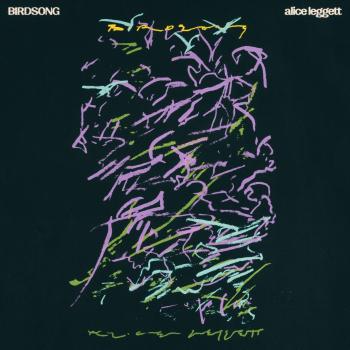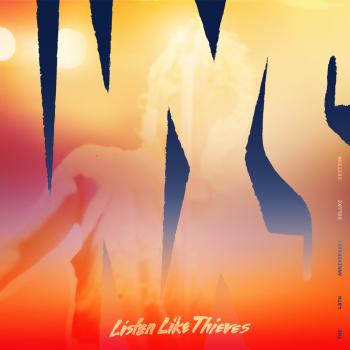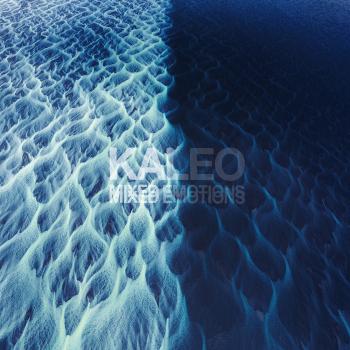
Intensity (Remastered 2024) Art Pepper
Album Info
Album Veröffentlichung:
1963
HRA-Veröffentlichung:
13.12.2024
Das Album enthält Albumcover
Entschuldigen Sie bitte!
Sehr geehrter HIGHRESAUDIO Besucher,
leider kann das Album zurzeit aufgrund von Länder- und Lizenzbeschränkungen nicht gekauft werden oder uns liegt der offizielle Veröffentlichungstermin für Ihr Land noch nicht vor. Wir aktualisieren unsere Veröffentlichungstermine ein- bis zweimal die Woche. Bitte schauen Sie ab und zu mal wieder rein.
Wir empfehlen Ihnen das Album auf Ihre Merkliste zu setzen.
Wir bedanken uns für Ihr Verständnis und Ihre Geduld.
Ihr, HIGHRESAUDIO
- 1 I Can't Believe That You're In Love With Me (Remastered 2024) 04:25
- 2 I Love You (Remastered 2024) 05:24
- 3 Come Rain Or Come Shine (Remastered 2024) 04:48
- 4 Long Ago (And Far Away) (Remastered 2024) 04:21
- 5 Gone With The Wind (Remastered 2024) 05:50
- 6 I Wished On The Moon (Remastered 2024) 04:56
- 7 Too Close For Comfort (Remastered 2024) 06:44
Info zu Intensity (Remastered 2024)
Das komplette Original-Album „Intensity“ von Art Pepper, aufgenommen als Quartett. Es war Peppers letztes Album als Bandleader, bevor er wegen Drogenmissbrauchs eine längere Haftstrafe antreten musste. (Nach einer kurzen Session als Bandmitglied im Januar 1961 musste er nach San Quentin und machte bis Mai 1964 keine Aufnahmen mehr.
Ironischerweise hält sich Pepper an swingende Standards wie „I Can't Believe That You're in Love with Me“, „Gone with the Wind“ und „I Wished on the Moon“ als Ausgangspunkte für dieses interessante und weitgehend unterhaltsame Set.
„Wie diese und seine letzte zeitgenössische Veröffentlichung Smack Up! zeigen, war Art 1960 auf dem besten Weg zu einer neuen Art von spielerischer Freiheit. Er hatte, zum Teil durch die Vorbilder John Coltrane und Ornette Coleman, begonnen, seine wenigen verbliebenen Hemmungen abzulegen und einen noch direkteren Kontakt zu seinen Gefühlen zu suchen... Ein befreundeter Musiker sagte mir kürzlich, dass Peppers Spiel manchmal „wie ein weinender Mann klingt - es zerreißt einen einfach. Ich stimme zu.“ (Richard Hadlock, Francisco Examiner)
"Intensity“ war das letzte Album der frühen Phase des Altisten Art Pepper und wurde veröffentlicht, als er bereits eine lange Gefängnisstrafe wegen seiner Heroinsucht verbüßte. Unterstützt von dem Pianisten Dolo Coker, dem Bassisten Jimmy Bond und dem Schlagzeuger Frank Butler, begann Pepper gerade, den Einfluss von John Coltrane und Ornette Coleman in seinem Stil zu zeigen, indem er sein Spiel befreite und eine größere Intensität während seiner Improvisationen zeigte. Ironischerweise hält sich Pepper an swingende Standards wie „I Can't Believe That You're in Love with Me“, „Gone with the Wind“ und „I Wished on the Moon“ als Ausgangspunkte für dieses interessante und weitgehend unterhaltsame Set. Abgesehen von einer Aufnahme aus dem Jahr 1973 mit der Big Band von Mike Vax sollte es 15 Jahre dauern, bis Art Pepper wieder einen Aufnahmetermin in den Studios wahrnahm.“ (Scott Yanow, AMG)
Art Pepper, Altsaxophon
Dolo Coker, Klavier
Jimmy Bond, Bass
Frank Butler, Schlagzeug
Digitally remastered
Art Pepper
born in Gardena, California on September 1, 1925 and raised in nearby San Pedro, began playing clarinet at age 9 and, by 15, was performing in Lee Young’s band at the Club Alabam on Central Avenue, the home of jazz in prewar Los Angeles.
He joined Stan Kenton’s band, touring the U.S. and gaining fame, but was drafted in 1943 serving as an MP in London and performing with some British jazz bands. He returned to the States and to Kenton, touring and recording. In 1952 he placed second only to Charlie Parker in the Down Beat jazz poll. Probably his most famous recording from that period is his stunning performance of “Art Pepper,” written by Shorty Rogers (as part of a series of charts Kenton had commissioned to feature members of his band).
Art left Stan Kenton in 1951 to form his own group, occasionally recording for Rogers and others. He signed with Contemporary Records in 1957.
From the beginning Art’s playing combined a tender delicacy of tone with a purity of narrative line—a gift for storytelling that was made irresistible by an inherent, dancing, shouting, moaning inability to ever stop swinging.
He was one of the few alto players to resist the style and tone of Charlie Parker. What he failed to resist was the lure of drugs, ubiquitous, at that time, among jazz musicians. And although some users managed to get through and over their addictions, Art, survivor of a rocky childhood (alcoholic neglectful mother, alcoholic violent father), unbalanced from the get-go, never did quite triumph over his, though he may have fought them to a draw.
So, in 1952, he began a long series of hospitalizations and incarcerations for violations of the drug laws of his time—possession, internal possession (“marks”), and then for violations of his previous releases (more possessions and internal possessions). In time, he became a petty thief, a real thief, a robber (though not an armed robber; his fellow criminals thought he was too crazy to be trusted with a gun). He served time for the Feds (Terminal Island) and for the State of California (San Quentin). He prided himself on being “a stand-up guy,” a good criminal.
All this history makes a pretty gripping story as it’s told by Art with his wife Laurie Pepper in their book, Straight Life (DaCapo). What’s surprising is that the music he managed to make during irregular bursts of freedom was enthralling, too. The gift was starved for the spotlight, for opportunities for performing and recording, but it flowered in the dark, became deeper and more soulful. The performances—from The Art Pepper Quartet (1952) and Art Pepper Meets the Rhythm Section (with Miles Davis’s rhythm section) on Contemporary (1957) all the way through the recordings he made at the Village Vanguard (Contemporary, 1977) and his later recording with strings (Winter Moon, Galaxy, 1981)—are brilliant, poignant, and a joy to hear. The rigor and abandon with which he lived his life were present in every note he played.
Art Pepper died June 15, 1982 of a cerebral hemorrhage. But the 1979 publication of Straight Life and accompanying press had revived Art’s career. With Laurie’s help, he spent the last years of his life trying to make up for lost time, making each performance a life-or-death occasion, touring worldwide with his own bands, recording over a hundred albums, writing songs, winning polls, respect, and adulation.
Most of his albums are still available for sale. Laurie Pepper is releasing the best of what remains unreleased and is working on a movie based on the book, Straight Life. •
Dieses Album enthält kein Booklet























